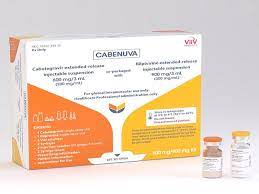Pfizer, Inc. (NYSE: PFE) stands as a stalwart in the healthcare sector, renowned for its wide array of biopharmaceutical products. With a market capitalization of $132.75 billion, Pfizer has carved out a significant presence in the drug manufacturing industry, offering a diverse portfolio that spans cardiovascular medications, vaccines, and treatments for infectious diseases.
As of the latest trading session, Pfizer’s stock price is $23.35, reflecting a modest change of 0.23 (0.01%). The stock’s 52-week range from $21.59 to $31.39 highlights its price volatility over the past year, a factor investors should consider when evaluating its future performance.
Pfizer’s valuation metrics present an interesting narrative. The absence of a trailing P/E ratio may raise questions, but the forward P/E of 7.57 suggests expectations of earnings growth, making the stock appear attractively priced relative to its anticipated earnings. However, investors should note the lack of data on PEG, Price/Book, and Price/Sales ratios, which could typically provide deeper insights into the stock’s valuation framework.
In terms of performance, Pfizer reported a revenue growth decline of 7.80%, signaling challenges in top-line expansion. Despite this, the company maintains a commendable EPS of 1.38 and a Return on Equity of 8.62%, underscoring its efficiency in generating profits relative to shareholder equity. Moreover, Pfizer’s robust free cash flow of approximately $15 billion positions it well for sustained dividend payouts and potential reinvestments in growth opportunities.
The company’s dividend yield of 7.37% is notably high, offering an attractive income stream for dividend-focused investors. However, a payout ratio of 122.46% indicates that dividends exceed earnings, a situation that could be sustainable only if supported by strong cash flow, which Pfizer currently enjoys.
Analyst sentiment towards Pfizer is largely neutral to positive, with 9 buy ratings, 15 holds, and a single sell rating. The average target price of $29.24 suggests a potential upside of 25.22%, an enticing prospect for investors seeking capital appreciation. The range from $23.00 to $42.00 further illustrates varying perceptions of Pfizer’s growth potential and risk factors.
From a technical perspective, Pfizer’s 50-day moving average of $23.16 closely aligns with its current price, while the 200-day moving average of $26.16 points to longer-term downward pressure. The RSI (14) of 51.78 indicates a balanced momentum, neither overbought nor oversold, providing no immediate triggers for buy or sell decisions. The MACD and Signal Line figures, with a slight positive divergence, might suggest a cautious optimism for near-term price movements.
Pfizer’s extensive product line, including its collaboration agreements with major pharmaceutical companies like Bristol-Myers Squibb and BioNTech SE, highlights its strategic positioning in innovative treatments and vaccines. This is particularly relevant as the company continues to pivot towards future mRNA and antiviral products, leveraging its success with the Comirnaty and Paxlovid brands.
Investors should weigh Pfizer’s solid dividend yield and potential upside against the backdrop of its revenue contraction and high payout ratio. The company’s strong cash flow and strategic partnerships may serve as catalysts for future growth, making it a compelling consideration for those looking to bolster their portfolios with a healthcare giant.







































